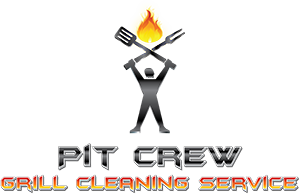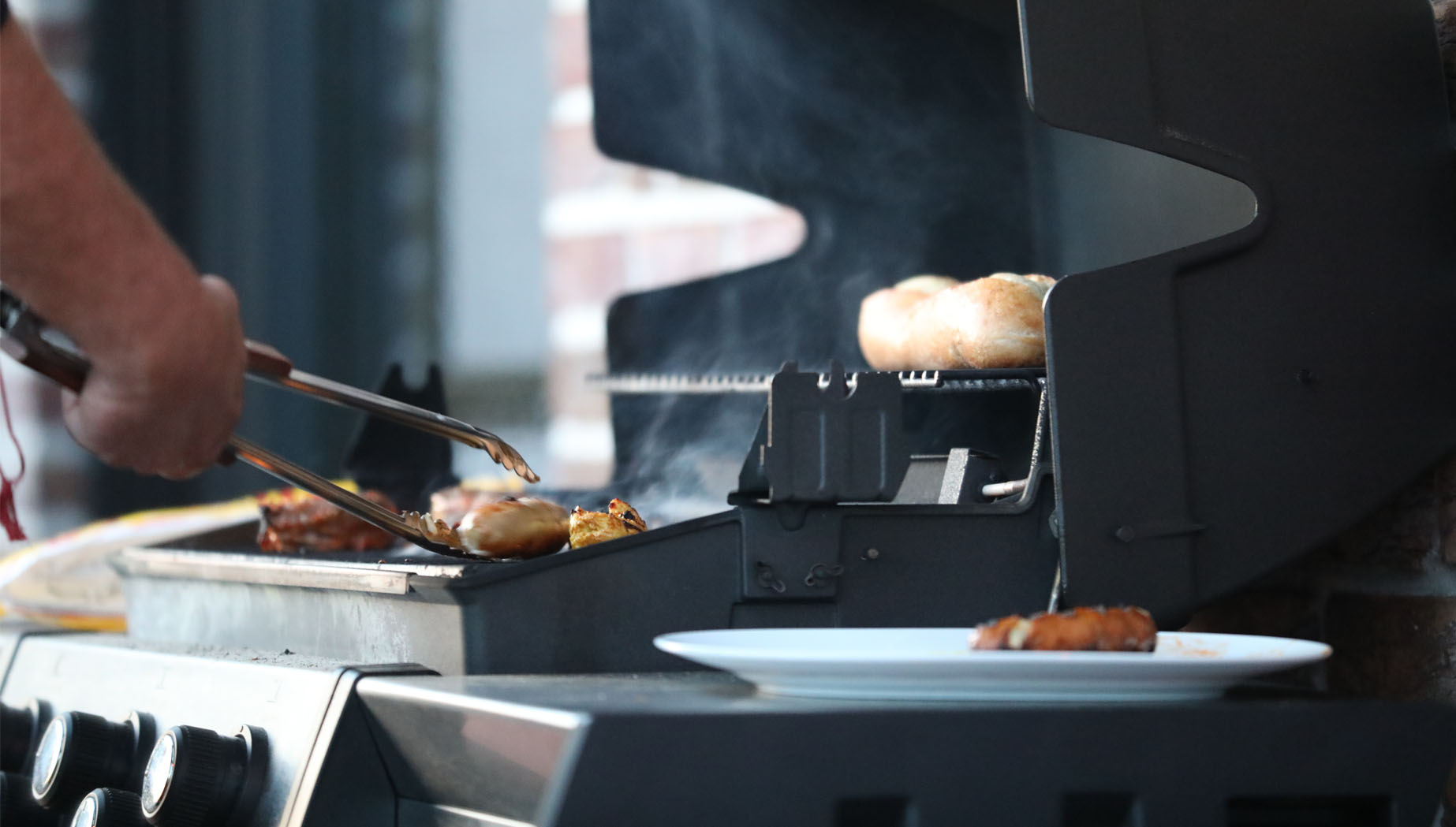Change your perspective – Change your life
Imagine being invited to a barbecue. Upon arrival, everything seems to be set up nicely in terms of décor and ambiance. The smell of the grill permeates the air and the cooler is overflowing with ice cold beverages. After the meets and greets, it is now time to eat. The host grabs a plate from the cupboard and hands it to you; you immediately notice some old food stuck to the plate and wonder what is it that would make him hand you a dirty dish to place your food on. Noticing your apparent discomfort with the dirty plate, the host grabs a grill brush from the sink and scrapes the old food from it before handing it back to you. How would you feel placing your food on the dish and eating from it? Would it make you question how the food was prepared? Let’s dig a little deeper. Imagine the same host removing a pot and a pan from the cabinet that also appears to have old food stuck to the bottom of them. Instead of washing the pot and pan, the host puts them on the grill and cranks the heat up in order to loosen the food fragments. With the same grill brush, he then attempts to brush off the food before placing more food in them to prepare and serve. You look at the host in amazement and he looks at you nonchalantly, uttering the words, “I just burn it off.” Would you feel comfortable eating with what you’ve just witnessed? Would you feel comfortable allowing your family or friends to eat at the barbecue, based on what you now know to be a common lifestyle of the host?
The common factor in both these scenarios is that food has directly come in contact with the plate, pot, and pan. In this regard, dishwashing assumes significance because clean dishes and utensils are important to family health. Bacteria grows on dishes and utensils that have not been thoroughly cleaned, rinsed, and dried. Dirty dishes, utensils, and remnants of food scraps in the kitchen can attract cockroaches, mice, and a plethora of other pests. While we may not store dirty dishes in cupboards or attempt to burn pots and pans, our relatability to this scenario probably extends to the ownership of a neglected barbeque grill along with the responsibility we should bare for those who consume food from it.
Changing your perspective of your grilling environment can have a positive impact on your lifestyle by influencing healthier and safer grilling habits pertinent to outdoor entertaining. To this end, a professional grill cleaning may be in your family’s best interest before firing up the grill this summer. Research demonstrates that the average outdoor grilling surface is home to over twice the amount of germs found on a toilet seat. According to a study conducted by Jeyes cleaning products, questionnaires were given to 1,400 participants that asked them about their personal hygiene and the cleanliness of their household.
What you may not know…
In an article produced by Consumer Goods & FMCG on the grill and barbeque market in the United States (US), statistics revealed that humans have been grilling and barbecuing for millennia. While people from all over the world continue the tradition even to this day, Americans seem to be particularly fond of it. This is evident in the fact that about 1.47 billion U.S. dollars worth of grills and barbecues were sold in the United States in 2016, up from 1.21 billion dollars in 2009. There is a vast variety of grills available in the market – from simple and portable to extravagant – with practically every single feature one can possibly imagine. Pellet grills, which witnessed 9.1 percent more growth in 2016 as compared to the previous year, are fueled by wood pellets as opposed to gas or charcoal, which are more common in the US. Interestingly, this article also revealed that as per surveys, 68 percent Americans do not need a special occasion to fire up their barbecue, and will do so whenever they want to, though favorable weather is certainly a positive contributing factor. Perhaps unsurprisingly, the vast majority of barbecue parties occur from late spring to early autumn, with 63 percent of American grill-owners throwing a barbecue party on the Fourth of July.
Let’s take a look at barbequed food. In an article titled Components of Healthful Grillling, Cassie Vanderwall, UW Health registered dietitian wrote that research supports moderate consumption of grilled meat, poultry, and fish that isn’t charred and is prepared at a safe temperature. Charring is defined as partially burning a food to blacken the surface. Proteins become charred by overcooking, the usage of high heat for an extended period of time, or from a flare-up induced by the drippings of the protein falling directly on the heat source. Frequent consumption of charred or well-done grilled meats has been associated with heightened cancer risk, particularly pancreatic cancer, by up to 60%.6.
What you should know…
Puffbacks:
Clogged burners full of dirt, dust, grease, rust, or corrosion can allow the accumulation of excess fuel in the gas line. This may eventually lead to a puffback when the fuel eventually ignites. Burners should be free from any kind of impediments to help keep them safe and functioning properly.
Bacteria & Rodent Residue:
Dirty drip trays are known to contain ash, spoiled food particles, rodent residue, insects, moldy grease, rust, and bacteria. Acids can corrode many different kinds of metals or wear them away through chemical processes. Although not all metals react with acids in the same way, drip trays are particularly vulnerable to corrosion when exposed to changing weather conditions, moisture, as well as other acidic compounds. For this reason, drip trays should be kept clean at all times.
Corrosion:
Not polishing stainless steel grills may compromise the integrity of the product. Regularly polishing and buffing is known to increase durability. Metal polishing acts as a protective sealant to metal surfaces, implying that it stops oxidation. This change essentially means your metal surfaces are much less likely to wear or corrode. With regular polishing, your stainless steel or metal will last a lot longer than unpolished (untreated) surfaces.
Failure & Safety Hazards
Preventative maintenance refers to the proactive or scheduled upkeep of a piece of equipment for the purpose of avoiding unnecessary mechanical failure. Regular cleanings and inspections address issues before they become urgent, increase the lifespan of the grill, reduce the risks of catastrophic failures & safety hazards, and help avoid costly repairs.
Wire Bristles Catastrophe:
Coarse wire bristles from your grill brush can break off and get into the food you’re grilling. If you then swallow one, it can puncture parts of the digestive system such as the esophagus, intestines, stomach, or liver. This, in turn, can lead to serious pain and cause far more serious issues in the event the punctures are major. For the purpose of customer safety, grill brushes should be changed out frequently.
- NEISS (The Consumer Product Safety Commission’s National Electronic Injury Surveillance System) carried out a study that investigated the rate of Wire Bristle injuries and determined that over 1600 patients had visited the emergency room during that period due to injuries; many of these were internal due to people unknowingly swallowing wire bristles. The NEISS was used to derive a national weighted estimate of emergency department visits for wire bristle injury from 2002 to 2014.
Why hire a professional grill cleaning company???
To get your grill professionally cleaned means you understand the risks and the value of maintaining a healthy & safe cooking environment. The value of an annual investment in your grill is immeasurable.
Benefits of hiring a grill cleaning professional:
- A professional understands the safety risks and health issues that are associated with your grill and has the requisite skill & experience to perform a proper cleaning.
- A professional can properly maintain your grill by exercising preventative maintenance measures in order to identify/reduce mechanical issues and faulty/damaged parts.
- A professional is well-versed with the nuances of cleaning products and understands what chemicals are safe and/or work best for extending the life of the grill.
By Kareem Dortch
Founder of Pit Crew Grill Cleaning Service

